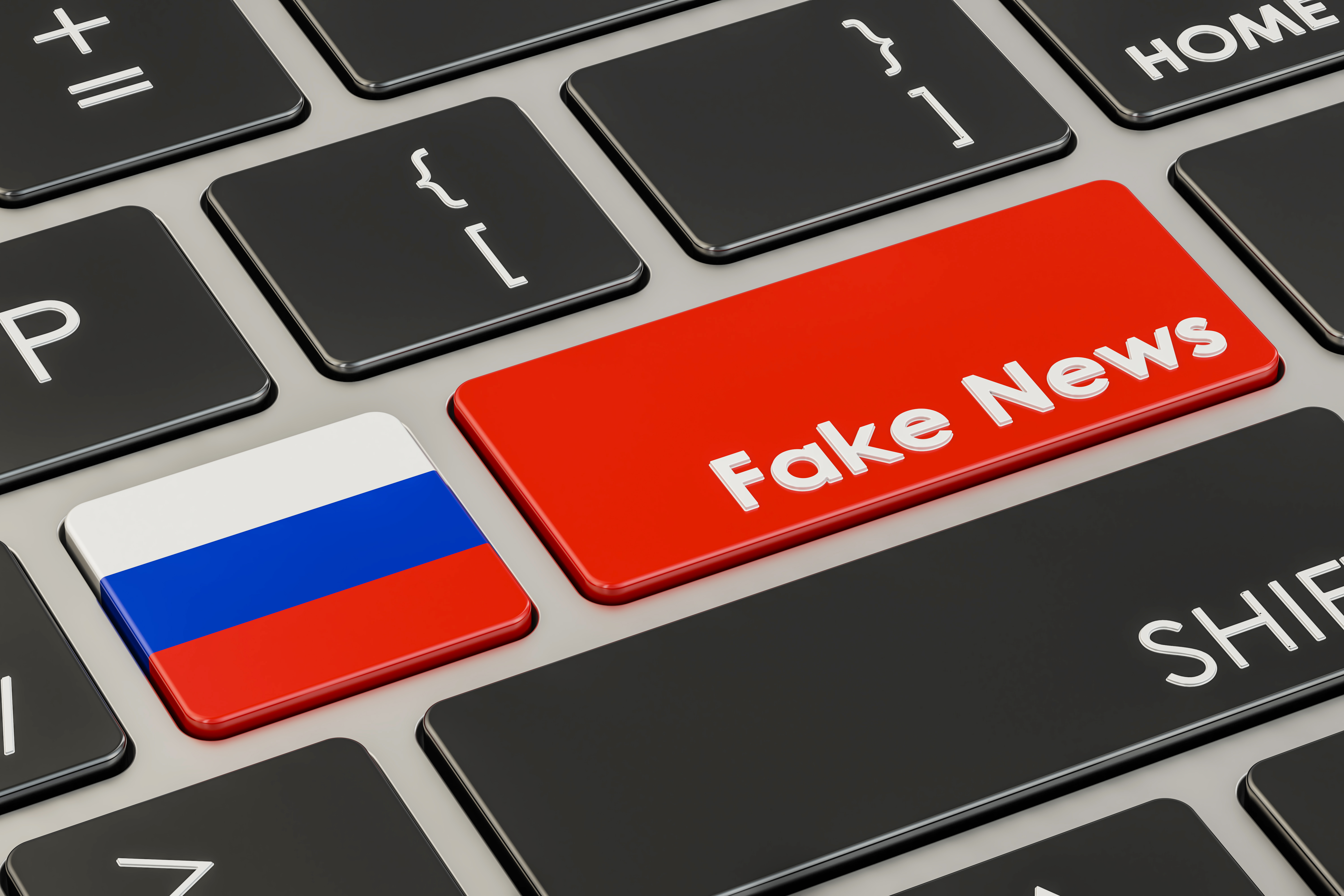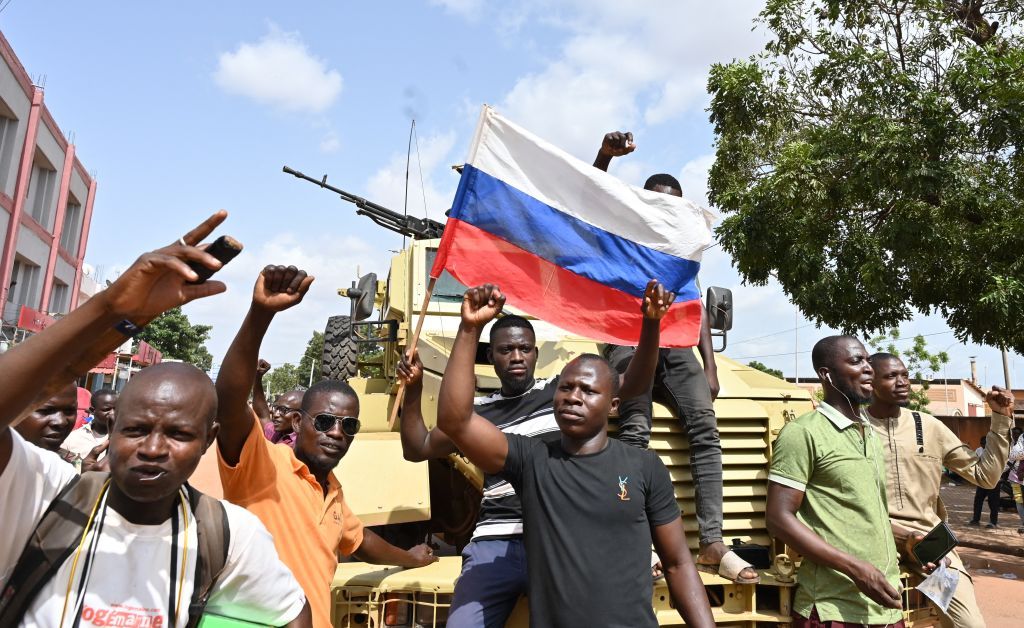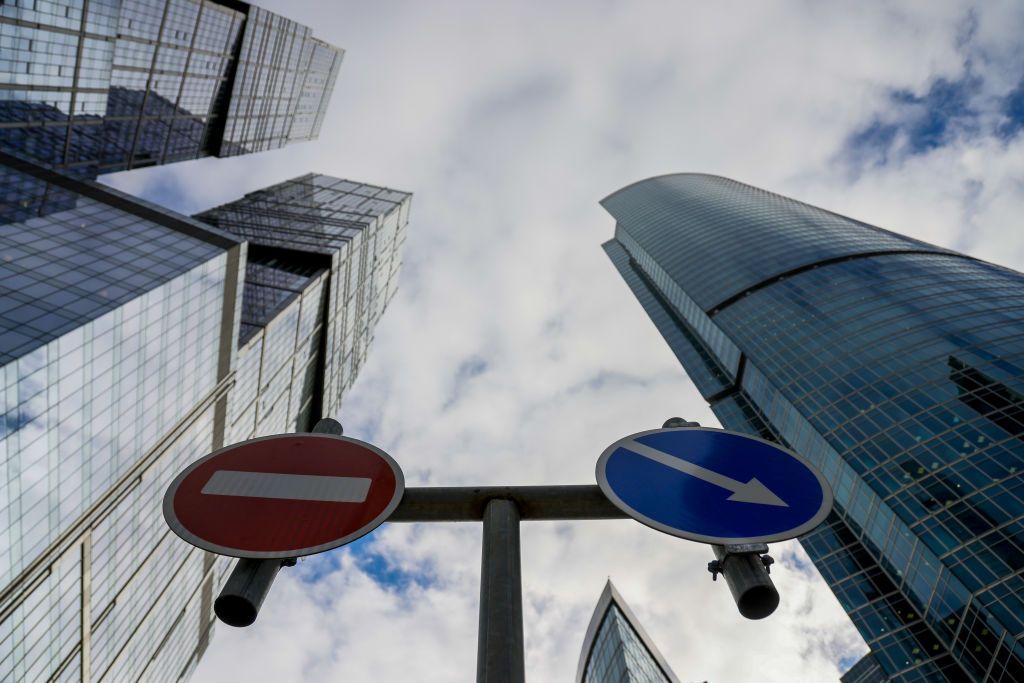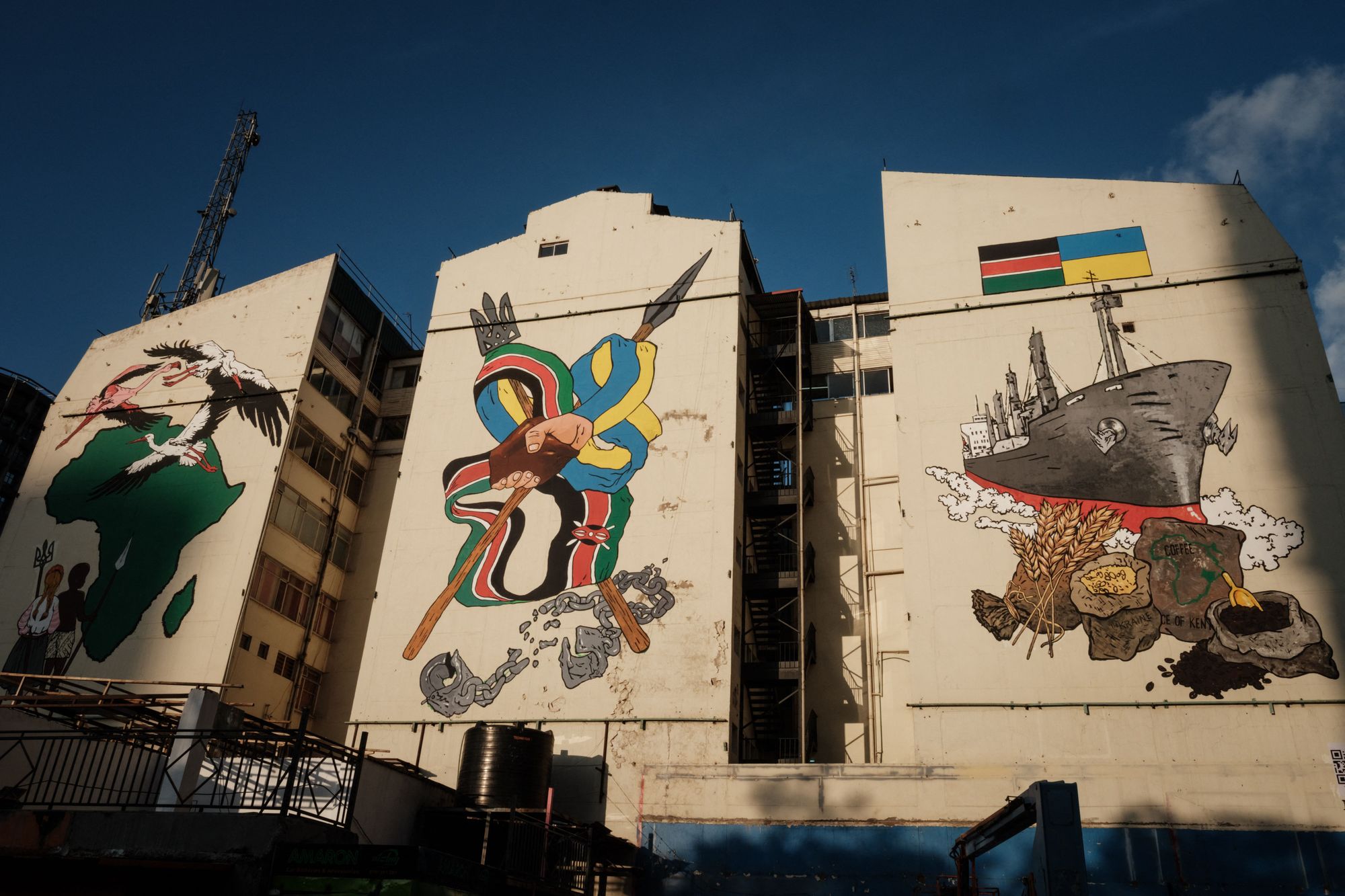Venezuelan opposition leader: Ukraine will never convince Latin, African autocrats

Russia is infamous for its malign influence in Latin America – from pouring billions of dollars to help local dictators stay in power and spreading its propaganda to committing crimes against civilians through the hands of private military companies.
It is also widely assumed that Russian propaganda efforts have been successful, with many people in the region harboring Russian sympathies, despite Russia’s brutal full-scale invasion of Ukraine launched in 2022.
To discuss Russia’s influence in Latin America and what Ukraine can do to fight it, the Kyiv Independent sat down with Leopoldo Lopez, a pro-democracy opposition political leader from Venezuela and the founder of the country’s Popular Will party. We met in Kyiv on Oct. 17.
In 2014, Lopez was sentenced to 14 years in prison by the regime of Venezuela’s current Russia-backed dictator Nicolas Maduro. Military police accused Lopez of inciting violence for his involvement in anti-government protests. The United Nations declared his arrest as arbitrary, while Amnesty International said he was a prisoner of conscience.
Lopez escaped prison in 2020, fleeing to Spain and living in exile ever since.
He’s continued advocating for democracy and freedom in Venezuela, winning many awards, including the Sakharov Prize for Freedom and Thought in 2017. He is also the co-founder of the World Liberty Congress and a public policy fellow at the Wilson Center think tank in Washington, D.C.

The Kyiv Independent: In the Global South, and Latin America specifically, pro-Russian propaganda and the Kremlin’s influence is so deep that even in light of Russia’s full-scale war against Ukraine, not much has changed; it seems like most people still have pro-Russian sympathies. Is it the governments or the people themselves, or are they both part of the problem?
Leopoldo Lopez: I want to start with an anecdote. I was in a military prison for seven years. We were allowed to watch TV only once a week, sometimes once a month, just for an hour. It was very shocking that the only channels that we were allowed to watch were Venezuela’s state channel, Russia Today, and HispanTV (Iran’s state-controlled broadcaster in Spanish).
So that gives you an idea of how committed the regime in Venezuela is to spreading Russian propaganda. The sophistication of the communications is very deep, it's very well produced, and it’s in Spanish. It has a lot of investment behind it. Access to Russia Today through YouTube is very high, as well as through other channels, which are promoted by the regime. So there is a very clear open approach of the regime to spread Russian information.
When we go to social media, there is also a very big Russian influence.
There have been several studies that show how there is a straightforward influence from Russia on the conversation in social media.
Russia is the leading promoter of foreign information in Venezuela, but it's not the only one. We also have in Venezuela something very shocking to Venezuelans and Latin America, which is HispanTV. It’s a channel from Iran with a program targeted to the Muslim population and beyond, but it's in Spanish, and it also spreads Iranian propaganda.
So these were the channels that I was allowed to watch when I was in prison.
And when we see the content of Russia Today, Hispan TV, and the content on social media, we're not talking about news. Russia Today is not a news channel. It's a propaganda channel. It’s a channel of fake news, of lies, of attacking and dismantling.
Venezuela’s regime has a lot of money behind this. There is no money for hospitals, there is no money for education, food, roads, or electricity, but a lot of money for propaganda.
Because the main expenditure of these regimes is to try and change people’s perception of reality.
The Kyiv Independent: And is it working?
Leopoldo Lopez: No, it's not. In the case of Venezuelans, it’s not. I can tell you that more than 85% of the Venezuelan people despise Nicolas Maduro.
It’s not that they don't like him as a politician. It's way beyond that.
The sentiment toward Maduro in Venezuela is very similar to the Ukrainian sentiment towards Vladimir Putin. It's a sentiment of hate, a sentiment of being attacked by the regime.
Because people are very aware that the despair and the humanitarian crisis that they are going through have one origin – the dictatorship.

As you very well know, the Russians and their mercenaries have taken social media and communications as a battleground. It was very illustrative for me when we learned that the Wagner Group had mercenaries that killed people and was also connected to troll farms.
So I think it's obvious that the same person – Yevgeny Prigozhin – was running these two battlefields with the same mentality. Because if you're running mercenaries, killing people, you are linked to organizing crimes in Africa and in Latin America, you are torturing people, and also running a troll farm for communication, it's obvious that you're doing it with the same mentality, same focus, and the same hatred to what they consider their enemies. A democratic country would be simply adversaries, but that's not the case in Venezuela, as it's not the case with Russia. We are considered enemies, we have been treated as such, and communication is one of the battlegrounds.
And I think that there is not enough pushback in Venezuela. There is no freedom of speech, no free media, no independent TV channels, radio, and webpages. There have been hundreds, maybe even thousands, of webpages that are completely censored with the help of China and with the help of technology also imported from Russia.
So in that sense, it is different from Ukraine. One of the things that I have learned here is that people like you exist. There is free media here. There are many of you, and there might be problems here, but there is free media. And free media stops things from happening when they are out in the open, especially if you have a democratic society. We don't have that in Venezuela.
The Kyiv Independent: Apart from controlling the media, what else is Russia doing in Venezuela?
Leopoldo Lopez: I’ll give you a track record of Russia.
Around 2007, there was a time when the oil prices were very high. So there was a lot of cash flow for the Venezuelan regime, but there was also a lot of corruption.
Much of the money that came into Venezuela went to Russia to buy arms. So today, the Venezuelan armed forces are completely dependent on Russian equipment. Not only the assault rifles but the artillery, the tanks, and particularly a very high investment in the air defense and the missile capacity in Venezuela.
And, of course, that has a consequence that the training of the (military) officials in Venezuela is now linked to Russia – many of our high officials have to be trained in Russia. There are permanent trips of the Venezuelan Minister of Defense to Russia, even after the start of the war against Ukraine. The dictatorship has been very open and very clear in its support of Putin.
There are also close ties between kleptocratic networks since the two countries have been banned from the financial system of the free world, and because of sanctions and other restrictions. That's not only between the state and the state-linked businesses but also some of the kleptocratic private businesses.

The Kyiv Independent: You often speak in your interviews about all dictatorships around the world sticking together, forming a network to work closely with each other. Can you describe this network?
Leopoldo Lopez: When I am asked about this, I reflect on the question of why dictator Nicolas Maduro is still in power, since as I said before, 85% of the people in Venezuela despise him.
Many people answer this question in different ways. Some attribute Maduro’s power to the fact that Venezuela has oil and natural resources, other people would say that it's because of the military, and other people would say that it is because the opposition has not been capable of transitioning into democracy.
I believe that even if all of those reasons might have some truth to them, the most important reason is that Maduro receives a very high level of support from Russia, China, Iran, Turkey, Cuba, and Belarus.
And this is a type of support that translates to different levels.
If you look at the voting pattern at the United Nations, you will see that not only are they voting together, but their arguments are copied and pasted. You can see this pattern at the Security Council, at the Human Rights Council, at the Food and Agriculture Commission… at every level.

Then there is the support Maduro has gotten in terms of the military – formal and informal military groups like the Wagner Group. The presence of the Wagner Group in Venezuela goes more than four years back.
And when I talk to people from Nicaragua, Uganda, or Zimbabwe, they have a very similar perception that the autocrats of their countries are also stealing power primarily because of the type of support they get from the mighty autocratic powers – primarily Russia, Iran, and China. And I've heard this from many other leaders from Africa and, of course, from the Latin American countries that are autocratic.
China is linked to these countries diplomatically. Iran is linked to energy, but there are also commercial kleptocratic links.
I hope that people understand that the conflicts that are popping up all over the world are linked to each other. This is a global struggle – not between the right and the left, not between communism and capitalism, but between autocracy and democracy. And I think that's a battle that is being fought here in Ukraine.
The Kyiv Independent: Many people around the world see Russia’s war in Ukraine merely as competition between global powers – Russia and the West. This view completely ignores Ukraine's role in it and also the history between Ukraine and Russia that led up to the war. But I don't think you believe that. In one of your interviews, you said this war is not about NATO, it is about democracy and autocracy because, as you said, the real threat that Ukraine poses to Russia is being this mirror of what Russia could be. And Ukraine is this neighbor that is flourishing and democratic. Could you talk about that a bit more?
Leopoldo Lopez: I think this is a battle that has different layers. And one of them is a layer of the narrative.
Of course, the narrative that Russia is defending itself from NATO influences is only an excuse for what has been a long desire of Putin to invade Ukraine for his crazy reasons of an empire that he wants to rebuild.
I believe that it's obvious that Ukraine is a democratic country. And I believe that what's at the heart of the invasion is to dismantle democracy, to undermine democracy.
And this is very clear with the actions of Russia and the Russian interference in the U.S. elections several times, in Brexit.
We have seen it in many cases where you have interference through cyber attacks, social media manipulation, and even with the financing of groups internally within democracies to promote this narrative that democracy is not working. There are many of these examples all over – in U.S. universities, in U.S. media, in U.S. and European NGOs. It is being financed by these regimes to undermine democracy, to create a sense of distrust of democracy, and to break the fabric of the society that, with all of its problems, lives under a democratic system.
The Kyiv Independent: What do you think are the main touching points between Ukraine and Venezuela, as well as Latin America in general? Some things that we can relate to and build relationships on.
Leopoldo Lopez: I think that we're fighting the same fight. You're fighting it in the most dramatic front line because missiles are dropping on your cities, your soldiers are dying, your territory has been occupied, and your children and your elderly have been killed.
But we are also a front line of that conflict between autocracy and democracy.
One similar reality that Ukraine and Venezuela have is that Venezuela today suffers from one of the largest migration crises in the world.
The deep humanitarian crisis has displaced eight million people, which is 25% of the population of my country.
So Ukraine is at war, and Venezuela has a humanitarian crisis, but the root cause, the origin of the problem, is the same – autocracy and dictatorship.
The Kyiv Independent: Is there anything that Ukraine can do to foster these relationships? Do you see any blind spots in our diplomacy?
Leopoldo Lopez: I've had the opportunity over the past year and a half to talk to several Ukrainian diplomats, and they've told me that they've been focusing on trying to work with the governments for the legitimization of Ukraine’s effort to defend itself. I think this is limited, to be honest.
I think Ukrainian diplomats will never convince Maduro, they will never convince Daniel Ortega in Nicaragua or Yoweri Museveni in Uganda.
So I believe that the diplomatic focus should be, at least in part, on the civil society, democratic movements, democratic political parties, free media, and regular citizens so that they understand that the root cause of all tragedy is autocracy.
So not to put all of the effort only on trying to gain a vote for the UN or support that won’t happen in many cases, but to win the hearts and the minds of the people from our countries. I think that can be done.














